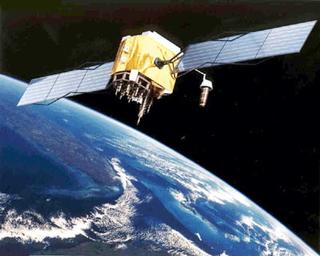General Says Fixing LightSquared Interference to Military GPS Ops Could Take 10 Years

WASHINGTON: It could take a decade or more for LightSquared to mitigate the impact of its proposed network on military global positioning systems, a general testified before lawmakers today.
Gen. William Shelton also told members of the House Armed Services Strategic Forces subcommittee the filters most recently proposed by LightSquared to eliminate interference with high-precision GPS receivers could cause other problems.
“We believe the precision of those receivers would be impacted in the presence of that filter,” said Shelton, commander of the U.S. Air Force Space Command. “There is a center frequency and harmonics that go out... Clipping off those harmonics decreases the accuracy of those receivers. If there’s something else magic out there, we don’t know.”
Shelton was one of five witnesses at the hearing entitled “Sustaining GPS for National Security.” All were from various federal agencies involved in vetting LightSquared, the proposed 4G wireless broadband network using satellite and terrestrial components in L-band spectrum, adjacent to GPS operations. Tests convened earlier this year indicated LightSquared interfered with GPS receivers. LightSquared offered a modified plan that it said left only high-precision receivers affected, and offered to make filters for those.
Most of the questions were directed at Shelton, who was skeptical about the filter fix, as were members of the subcommittee. Its chairman, Michael Turner (R-Ohio), asked Shelton how it would work, though both had clearly discussed the matter in a previous classified briefing.
“The filters are something that you would have to do, not that they would have to do, right? It doesn’t go on LightSquared’s system, it goes on your system?” he asked Shelton.
“Every precision receiver would have to be retrofitted,” the general replied. “How that might affect the overall platform that it’s on, is an unknown.”
Turner continued. “And anytime you’re modifying these systems, you add the issue of vulnerability to the systems and all type of unintended consequences that we can’t be certain of, including the enormous cost that you would be facing.”
“Enormous cost, time, integration, testing to thoroughly ring out these filters if they’re technically feasible. And even with that,” Shelton said, “we believe that the precision of those receivers would be impacted even in the presence of that filter.”
He told subcommittee ranking member Loretta Sanchez (D-Calif.) that the cost would likely run into the billions, and that it would take “a decade ore more” to affect a fix.
A fix for which there should be no need, as far as LightSquared is concerned. In its modified proposal with the Federal Communications Commission filed in June, LightSquared blasted GPS manufacturers for not building receivers with sufficient rejection capacity. LightSquared said GPS manufacturers did so in violation of FCC policy. Shelton testified otherwise.
“The frequency bands we’re talking about here, by FCC rulings in the past has always been intended to be a ‘quiet neighborhood’ so that GPS could coexist with other signals of the same magnitude,” Shelton told the chairman. “GPS is a very weak signal coming from space.... If you add signals of a similar strength to GPS, that’s not a problem for the receiver. However, if you put a rock band in that very quiet neighborhood, it’s a very different sort of circumstance.”
In his written testimony, the general said LightSquared’s proposed network for 40,000 terrestrial transmitters would produced received signal strength 5 billion times stronger than a GPS signal.
The “quiet neighborhood” Shelton mentioned referred to the original usage designation of LightSquared’s spectrum--that of Mobile Satellite Service. Eight years ago, the FCC added a provision allowing MSS providers to integrate an Ancillary Terrestrial Component to their networks. The ATC was supposed to fill in gaps in satellite coverage, which was to remain the primary form of service.
In 2004, the commission granted ATC authority for spectrum licenses that later came under LightSquared’s purview. LightSquared asked for a modification of the ATC integration rule in November 2010 so it could deploy terrestrial-only devices on its spectrum, essentially using satellite coverage to fill in ground-based gaps. The FCC gave its approval on the condition that the network did not interfere with GPS operations. The commission reiterated its position yesterday in a Public Notice calling for more testing of LightSquared’s systems. (See “FCC Delays LightSquared Launch.”)
Shelton said the regulatory circumnavigation caught the Air Force “off guard.”
He testified that more than 100 types of high-precision GPS receivers were tested at Holloman Air Force Base in New Mexico in April, including 29 military devices used in ground- and air-based missions, weapons and unmanned aerial vehicles.
“The test results demonstrated empirically that the LightSquared signals interfere with all of the types of receivers in the test,” Shelton said in written testimony.
Aviation GPS receivers operating 7.5 miles from LightSquared transmitters lost signal, with degradation as far out as 16.5 miles, he said. High-precision geological survey receivers picked up interference as far away as 213 miles and lost signal at 4.8 miles.
The tests primarily were based on LightSquared’s original proposal rather than the June modification. The June plan calls for the network to launch on the lower 10 MHz of its spectrum--not adjacent to GPS--at half the originally proposed power. Shelton said limited tests were conducted on the lower 10 MHz that showed unacceptable interference to the 33 devices used for testing. However, he said, those limited tests did not “constitute a sufficient evaluation of LightSquared’s deployment plan.
~ Deborah D. McAdams
Get the TV Tech Newsletter
The professional video industry's #1 source for news, trends and product and tech information. Sign up below.
